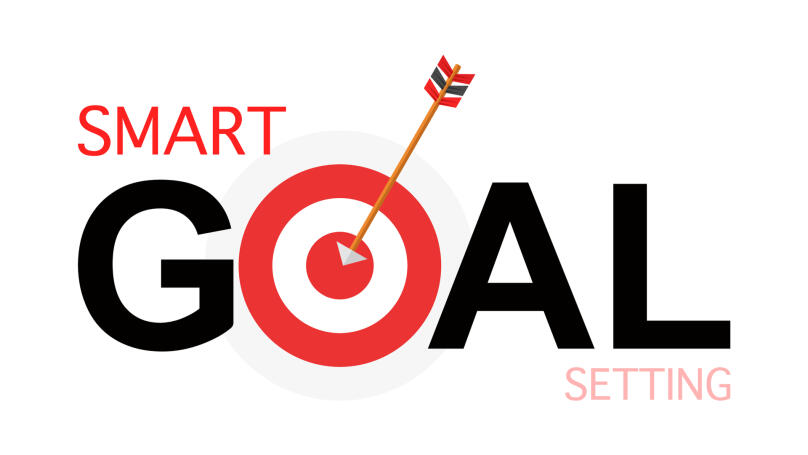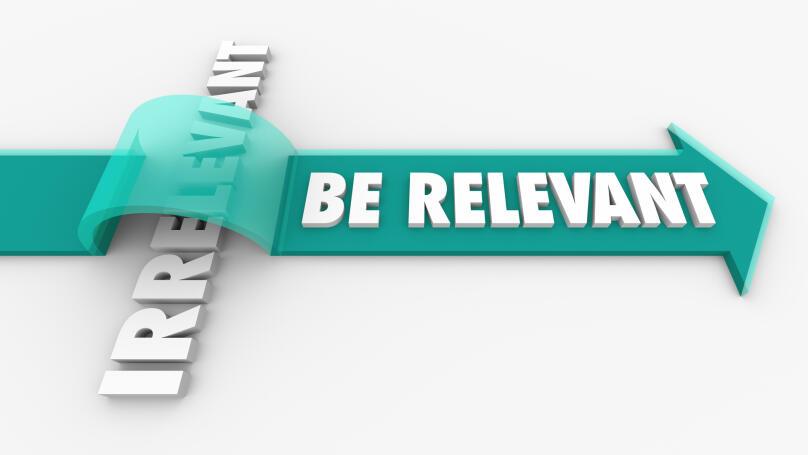Career Bank: How to set goals right
A career goal is what allows you to reach all heights. It mobilizes forces, motivates and inspires, and also helps to become that very best version of yourself. Here's how to set a goal that you won't give up on after a couple of weeks.

Step 1. Setting SMART Goals

SMART stands for Specific, Measurable, Attainable, Relevant, and Time-bound. In other words, the objective set under this method must be specific, measurable, attainable, relevant, and time-bound.
Let's look at the examples illustrating the method.
- Specificity. Here, it's all simple - not "learn English", but "learn the language to B2 level and pass an international exam," not "learn to cook," but "watch 50 lessons on the chef's YouTube channel and cook at least 30 dishes." But don't overdo it with too much specificity! In the case of a career, it's better to give yourself room to manoeuvre - set the goal of becoming a sales manager for a large IT corporation rather than Yandex, Google or Mail.Group.
- Measurability. How will you understand that the goal has been achieved? Think about it before you start your journey to achieve it. Measurable goals might be "increase sales by 55%" or "sell 5,000 units of product in 2 months."
- Attainability. Do not set the goal of "getting to know extraterrestrial civilizations" - this is unlikely to be done because we do not know if they exist at all. But the goal of "study at university, be trained and become an astronaut, and then fly to the ISS" is something you can achieve.
- Relevance. Sometimes goals change - our life circumstances, knowledge and skills don't stand still. And that's OK. Just check the course: in what waters will your ship sail and will it be better to adjust its path?
- Time limits. This is a clear time frame for which you want to achieve your goals: Month, half-year, year, 5 or 10 years. We recommend starting with short-term goals (the planning horizon is about two years) and then moving to strategic goals (from three years or more).
Step 2. Target correction

Creating goals using a special algorithm is only half the case. Now you have to fit them into your career plan, adjust and expand. The goals correction is inevitable - in some cases, you will not have enough time specified in the first iteration, in other cases you'll lack skills and competencies, and sometimes - a trivial network.
How do I adjust the goal if it seems perfect as it is?
- Break the goal into sub-goals. For example, the big goal is to "build a career as an SEO manager" and the small ones are "become a manager of your department", "become a division manager", "move to a management position in a related department", etc.
- Compare the sub-goals with the time period of the final goal. How long will it take you to walk from the employee to the department manager? And when do you think you may become the head of the entire division? At this point, you can adjust the time constraints - for strategic purposes, the planning horizon can be floating (for example, 10 to 12 years).
- Check if the sub-goals are achievable in the selected time period. To do this, you can either find career maps (available on industry portals like Glassdoor), track the career path of specialists in your company, or view the vacancies of nearby competitors. In the requirements for candidates for the desired positions (if there are no open ones, go to hh.ru - there is an archive of advertisements available) you need to find the range of skills, the required work experience, and the level of education. Will you be able to get the right education (for example, to complete a master's degree) and develop these competencies in the time you have?
- Set measurable metrics. Don't limit yourself to just one track - if you didn't lead a division but moved to a similar position in a company from another industry, the interim goal is still achieved.
- Create a plan to achieve your sub-goals. To become a department manager, you need to learn how to manage employees, get involved in internal processes of the company, hone your own professional skills in the current position, and so on. This is your plan to achieve your subgoal. Write it down in a notebook, break it into groups (you can take an online course and study company documentation at the same time), and set a time frame. Make sure the plan is highly detailed - this will help you start moving forward.
Step 3. Make sure your goals are up to date

Print out the following list of questions and use them to check each of your goals. Then adjust the goals that failed to pass the career detector.
- Does achieving your goal depend solely on you?
- Does the goal fit your vision of career strategy and ideal work?
- Are your daily efforts commensurate with the result you will get?
- How likely are you to burn out on your way to your target and refuse to follow your chosen path?
- Can you grow and evolve in your pursuit of a goal within your current company?
- Are you planning to move to another company/industry/functionality to achieve your goal?
Try to create multiple career goals as a workout. Your first attempts to tailor your career plans to the SMART technique can fail, and that's OK. Our plan will help you set the right goal and then achieve even the most ambitious one!
Share this with your friends via:
Latest News

In the UK, £23 million has been allocated for the expansion of the EdTech Testbed program — pilots of educational technologies in schools and colleges.

In the US, Tuskegee University announced the launch of Tuskegee University Global Campus (TUGC) — a new online platform for distance learning.

A significant stage in the development of the alternative education system has begun in West Northamptonshire in the UK: the County Council is actively calling on parents, guardians, and trustees to participate in shaping the future of this key area.

Outwoods Primary School in Atherstone, Warwickshire, having experienced deep sadness after the loss of their famous cat, Silla, has found solace in a new pet – a Maine Coon named Aloysius O’Hara.

In modern universities, artificial intelligence, and in particular ChatGPT, is rapidly transforming from a controversial tool into a full-fledged student assistant.












 9 Career Mistakes Young Professionals Make
9 Career Mistakes Young Professionals Make
 £23 million allocated for the expansion of EdTech Testbed in the UK
£23 million allocated for the expansion of EdTech Testbed in the UK
 Tuskegee University launches Global Campus — a new online platform
Tuskegee University launches Global Campus — a new online platform
 Test: How Psychologically Mature Are You? Check Your Inner Foundation.
Test: How Psychologically Mature Are You? Check Your Inner Foundation.
 Test. Check Your Social Media Dependency Level!
Test. Check Your Social Media Dependency Level!
 Test: What Business is Right For You?
Test: What Business is Right For You?
